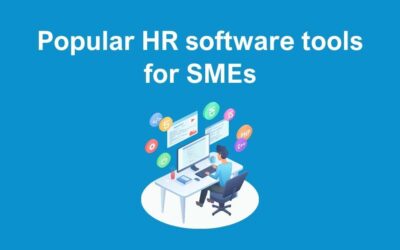Applicant tracking systems can help shorten and streamline the CV evaluation process.
Applicant tracking systems can be used to facilitate a number of different processes during recruitment, however, many companies implement them to aid HR staff in the CV evaluation process.
In the past, they tended to be used by big companies, but over the last couple of years, more and more SMEs have been using them to improve the process of finding employees too. Here we will take a look at some of the benefits and drawbacks of using applicant tracking systems for recruitment.
Streamline the CV sorting process
Today companies often receive hundreds and thousands of CVs and applications for vacancies they advertise, as the job market is competitive and the use of internet advertising spreads the word far and fast. One of the benefits of applicant tracking systems is that they can streamline the CV sorting process so HR employees do not have to spend weeks going through every single one. Basically, they are configured to look out for certain elements of a CV which will mean it either goes in the ‘yes’ pile or the ‘no’ pile.
Match candidates to jobs
Something applicant tracking systems can also help with is matching candidates to jobs. For example, if a candidate was turned down for a particular role, as their CV did not fit the criteria, the applicant tracking system will hold it on file and flag any positive matches it has to future job vacancies. This means that the HR employee can then simply contact the candidate and ask if they would like to interview for a different role with the company.
Save time and money
Basically, applicant tracking systems are designed to help businesses save time and money. By automating processes, they reduce the amount of paperwork HR staff have to do, helping to save time and lower administrative costs. Applicant tracking systems can also save on the cost of advertising by automatically publishing job vacancy ads to sites and finding potential candidates already ‘on file’ to contact.
Miss out on potentially great candidates
One of the problems with applicant tracking systems is that they are designed to look for CVs and applications that meet the exact requirements of the position advertised. Whilst this may not sound like a bad thing, it often means that candidates that could have valuable experience, yet are switching careers and therefore have a varied CV, do not even get considered for the role.
Inaccurate and unreliable
Another drawback of applicant tracking systems is that at times they can be inaccurate and unreliable. For example, applicant tracking systems often reject resumes for invalid reasons, such as the scanner not being able to read them properly. If a resume is a little more complex than others, this may also cause the system to reject it. This is not only unfair to candidates but unproductive for businesses too.
Eliminating perfectly good candidates
Applicant tracking systems often have a limit for the applicant’s information. This often means that organisations end up eliminating perfectly suitable candidates, which is very counterproductive.
Conclusion
Like with all technology, there are benefits and drawbacks to using applicant tracking systems. Whilst they can help businesses to save time and money by reducing admin, at the at the same time they can be unreliable and responsible for businesses losing out on the chance to hire good candidates. If you are considering using an applicant tracking system to aid you in the recruitment process, we highly recommend weighing the pros and cons to check it is the right decision for your business.
Want to know more, call Alistair on 01383 668178 or drop him an email at info@thehrbooth.co.uk


